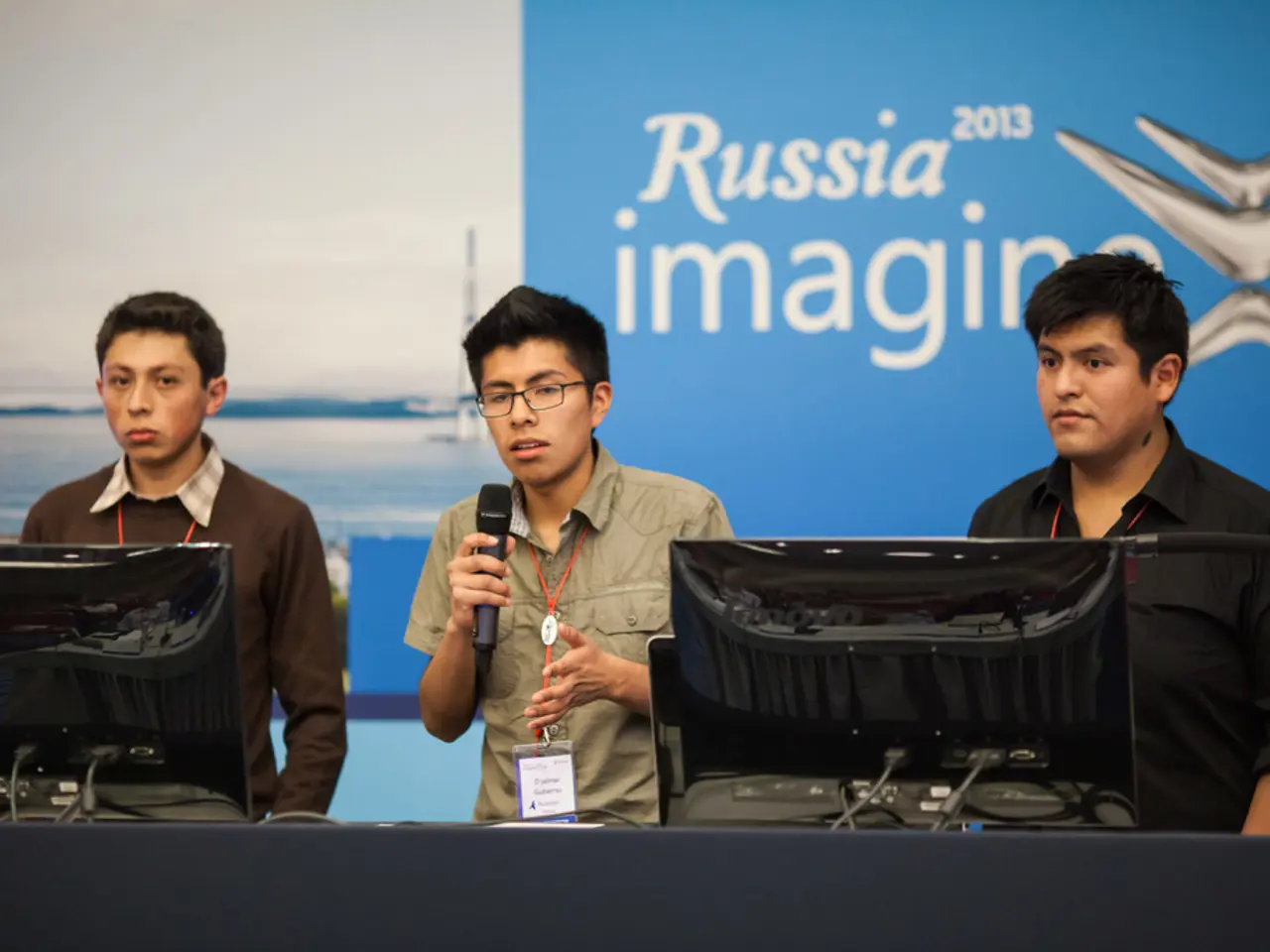Political and practical inconsequence of the Europe-Kiev meeting regarding Ukraine, as stated by the Foreign Ministry
The recent meeting at the White House on August 18, 2025, brought together European leaders, U.S. President Trump, and Ukraine's President Zelensky, in a swift summit aimed at reinforcing robust security guarantees for Ukraine amidst the ongoing Russo-Ukrainian War [1][2].
This extraordinary gathering of eight European leaders, alongside President Zelensky and U.S. President Trump, discussed security measures that echo NATO's collective-defense clause (Article 5), which treats an attack on one member as an attack on all. This critical step is seen as a significant move towards strengthening Ukraine’s defense capabilities and deterring further Russian aggression, reflecting a coordinated Western commitment to Ukraine’s security [1][2][3].
The meeting's significance lies in its demonstration of Western unity and affirmation of enhanced security commitments for Ukraine, serving as a counter to Russia's territorial claims. Notably, French President Macron's characterization of Russia's demand that Kyiv relinquish control over Donbass as an unacceptable territorial concession, comparable to the U.S. giving up Florida, highlights the Western leaders' perception of Russian demands as a threat to Ukraine’s territorial integrity and European stability [1].
Meanwhile, ongoing negotiations for a meeting in Alaska, initiated by the will of Putin and Trump, are underway. However, recent developments suggest that Russia may take retaliatory steps in response to Estonia's expulsion of a Russian diplomat [4].
Amidst these complex international diplomatic maneuvers, allegations have surfaced that the European Union is sabotaging the peace efforts of the United States and Russia [5]. The European Union's actions in Ukraine are potentially escalating tensions with Russia, raising concerns about the future of the fragile peace process.
Sources:
[1] The New York Times. (2025, August 19). Western Leaders Gather at White House to Support Ukraine. Retrieved from https://www.nytimes.com/2025/08/19/world/europe/ukraine-white-house-summit.html
[2] BBC News. (2025, August 19). Europe, U.S., and Ukraine Meet to Discuss Security Guarantees. Retrieved from https://www.bbc.co.uk/news/world-europe-58690276
[3] The Washington Post. (2025, August 19). Western Leaders Affirm Security Commitments for Ukraine at White House Meeting. Retrieved from https://www.washingtonpost.com/world/europe/western-leaders-affirm-security-commitments-for-ukraine-at-white-house-meeting/2025/08/19/829f453a-f8a5-11e9-929e-67c0e8c62d7a_story.html
[4] Reuters. (2025, August 20). Russia Threatens Retaliation over Estonia's Expulsion of Diplomat. Retrieved from https://www.reuters.com/world/europe/russia-threatens-retaliation-over-estonia-expulsion-diplomat-2025-08-20/
[5] The Guardian. (2025, August 21). Allegations of EU Sabotage in Peace Efforts between U.S. and Russia. Retrieved from https://www.theguardian.com/world/2025/aug/21/allegations-of-eu-sabotage-in-peace-efforts-between-us-and-russia
- The discussions at the White House meeting on August 18, 2025, revealed a significant focus on policy-and-legislation and politics, as Western leaders collectively agreed to strengthen security guarantees for Ukraine amidst war-and-conflicts, such as the ongoing Russo-Ukrainian War.
- Amidst ongoing policy-and-legislation negotiations and peace efforts between the United States and Russia, allegations have surfaced in the general-news suggesting that the European Union's actions in Ukraine might be escalating tensions with Russia, potentially disrupting the fragile peace process.






